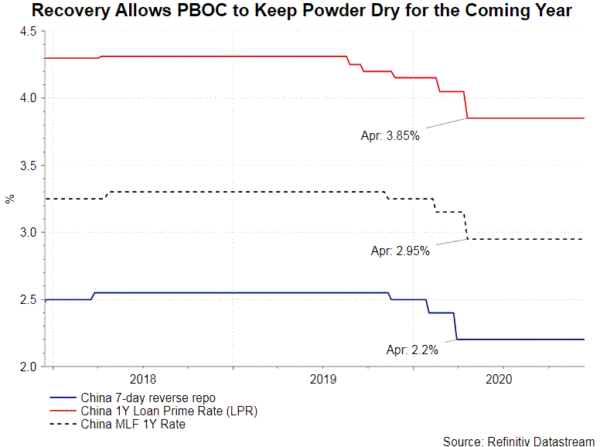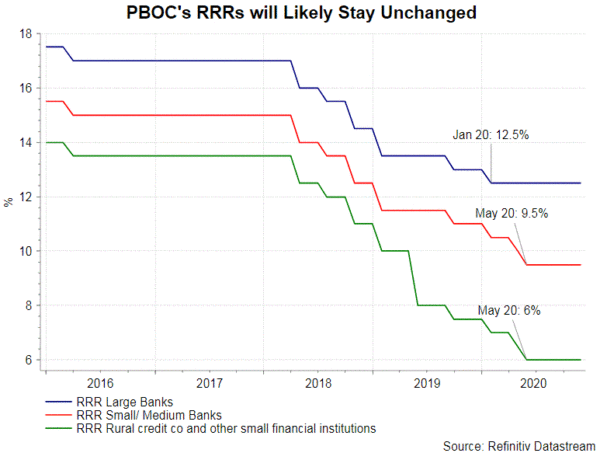The latest set of economic data indicates economic recovery in China continued. Growth in industrial production improved slightly, while manufacturing investment accelerated, thanks to strong exports growth. Retail sales growth accelerated, suggesting internal circulation has taken effect.
Industrial production expanded +7% y/y in November, inline with expectations and up +0.1 ppt from a month ago. Output of computers, electronics and medical products increased, more than offsetting the decline in automobile and general equipment production. Retail sales grew +5% y/y, following a +4.3% gain in October. The market had anticipated a +5.1% growth. Sales on cosmetics and jewelry saw strong growth, gaining +32.3% y/y and +24.8% y/y, respectively. Automobile sales expanded +11.8% y/y, just slightly below October’s +12%. Growth in online goods sales eased to +13.9% y/y in November, from +21.4% in the prior month.
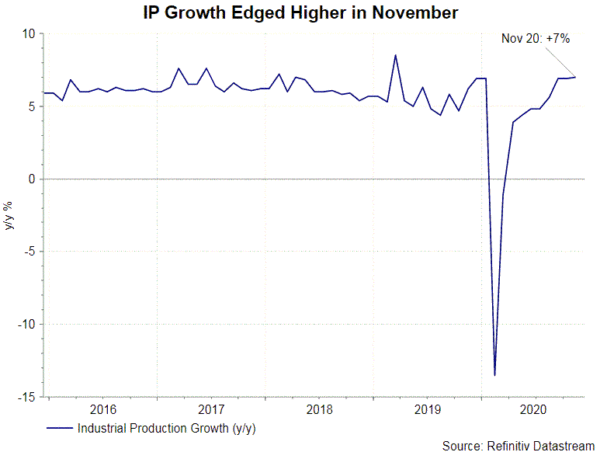
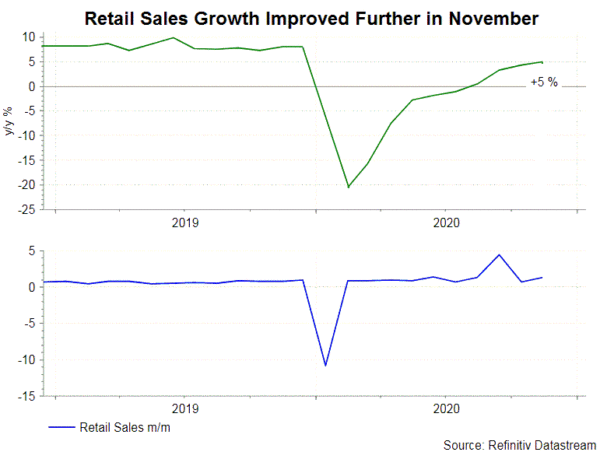
Urban fixed assets investments (FAI) expanded +2.6% in the first 11 months of the year, accelerating from +1.8% in the first 10 months. For the single month of November, urban fixed assets investments rose +9.4% y/y, compared with +9.6% in the prior month. The breakdown shows that manufacturing investment accelerated sharply to +10.8% y/y in November, from +3.9% in the prior month. Infrastructure investment grew +7% y/y, easing from +10.1% in October. Property investment growth moderated to, but stated relatively strong at, +11.4% y/y in November. Growth in October was +12.3%.
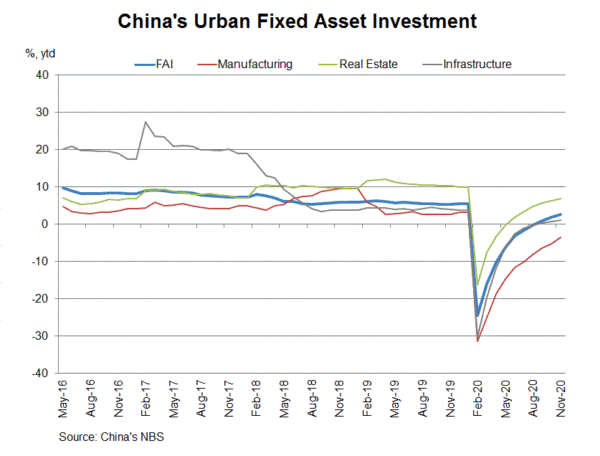
Ongoing economic recovery suggests that PBOC will maintain its monetary policy unchanged for the coming year. On the policy rate, the central bank has kept its loan prime rate unchanged at 3.85% since April. Meanwhile, it has not adjusted reserve requirement ratio (RRR) since May. Currently RRRs for large banks, small and medium banks, and rural credit companies have been staying at 12.5%, 9.5% and 6% respectively.
